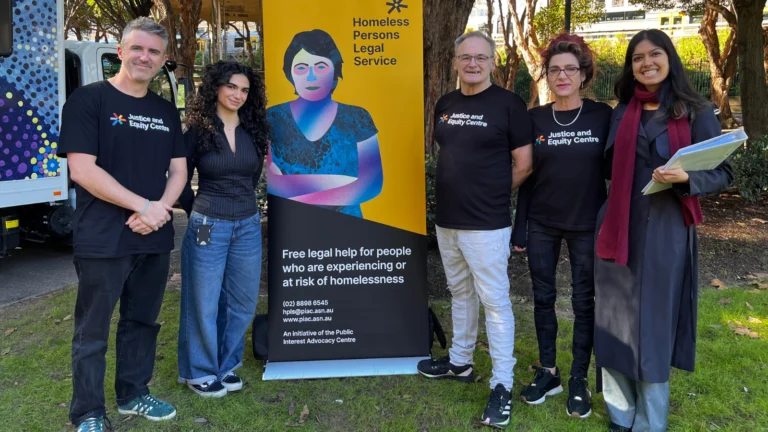In a significant decision handed down on Tuesday, the District Court of NSW has confirmed that NSW Police do not have the power to enter people’s properties to conduct random ‘bail compliance checks’ without a court order.
The case arises from concerns that police have been conducting excessive and invasive bail compliance checks, including late at night and multiple times in a night, without any reason to believe that a person is not complying with their bail conditions.
PIAC represents two Aboriginal people who were subjected to repeated visits to their house by police officers for the purpose of conducting ‘bail compliance checks’ in 2014. In a three-month period, the police came to their house on at least 50 occasions between 9pm and 2:15am. One of our clients, who was not subject to bail conditions, was heavily pregnant at the time and her two-year-old child was living at the property. On at least six occasions the police visited twice in one night. At no time was our client found to have breached his bail. The underlying criminal charges were later withdrawn.
‘This type of conduct by police is intrusive, excessive, distressing and very disruptive to family life,’ said PIAC CEO Jonathon Hunyor. ‘This decision upholds the limitations placed on police powers by the Bail Act and provides welcome clarity’.
This decision has confirmed what the NSW Parliament intended when it introduced amendments to the Bail Act back in 2012: that if police want to monitor or ensure a person is complying with their bail conditions, they must ask the court for an order to do so (called an ‘enforcement condition’). In deciding whether to make an order, a court must be satisfied that it is ‘reasonable and necessary’.
‘It is clear from the Bail Act that if police believe they need additional powers to monitor or enforce a person’s compliance with their bail conditions, they can seek an order from a court to do so. But their powers, including the power to enter private property, are not unlimited’, said Jonathon Hunyor.
‘PIAC is concerned that police in NSW have been stepping outside their power by repeatedly visiting peoples’ homes and requiring them to present themselves at all hours, in circumstances where there is no suspicion that they are breaching bail and without a court order. The Court has upheld our argument that it is for a court to decide whether intrusive bail checks of this type are warranted and set limits on what is reasonable,’ added Jonathon Hunyor.

